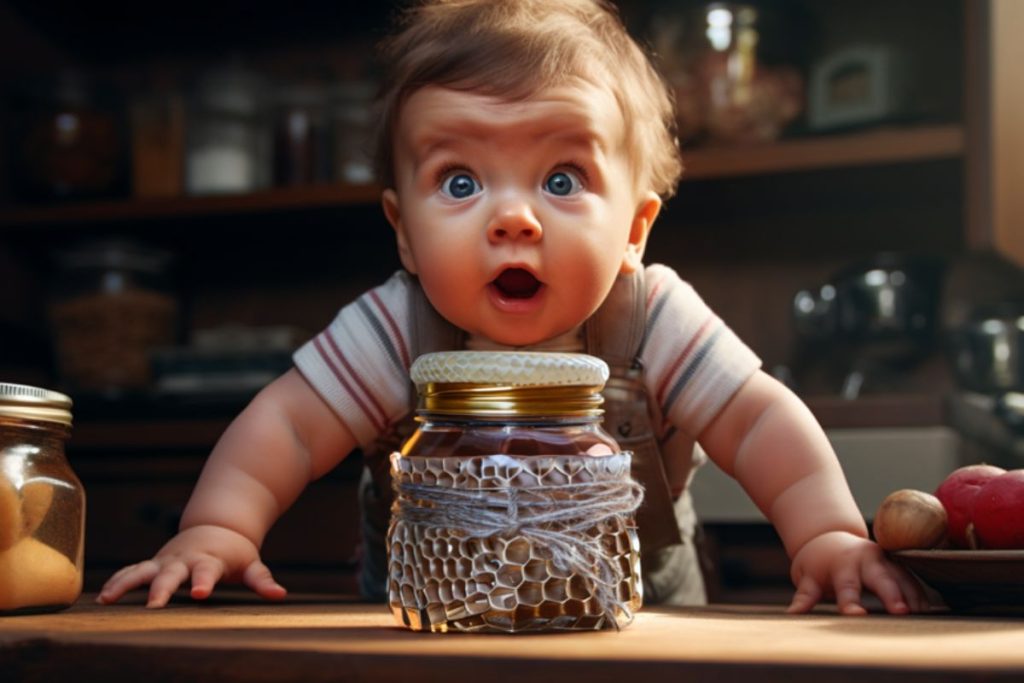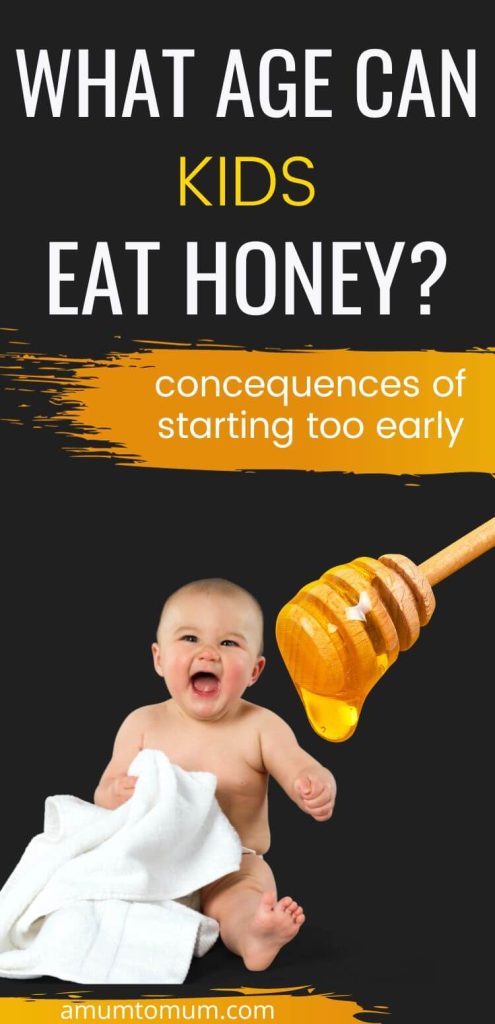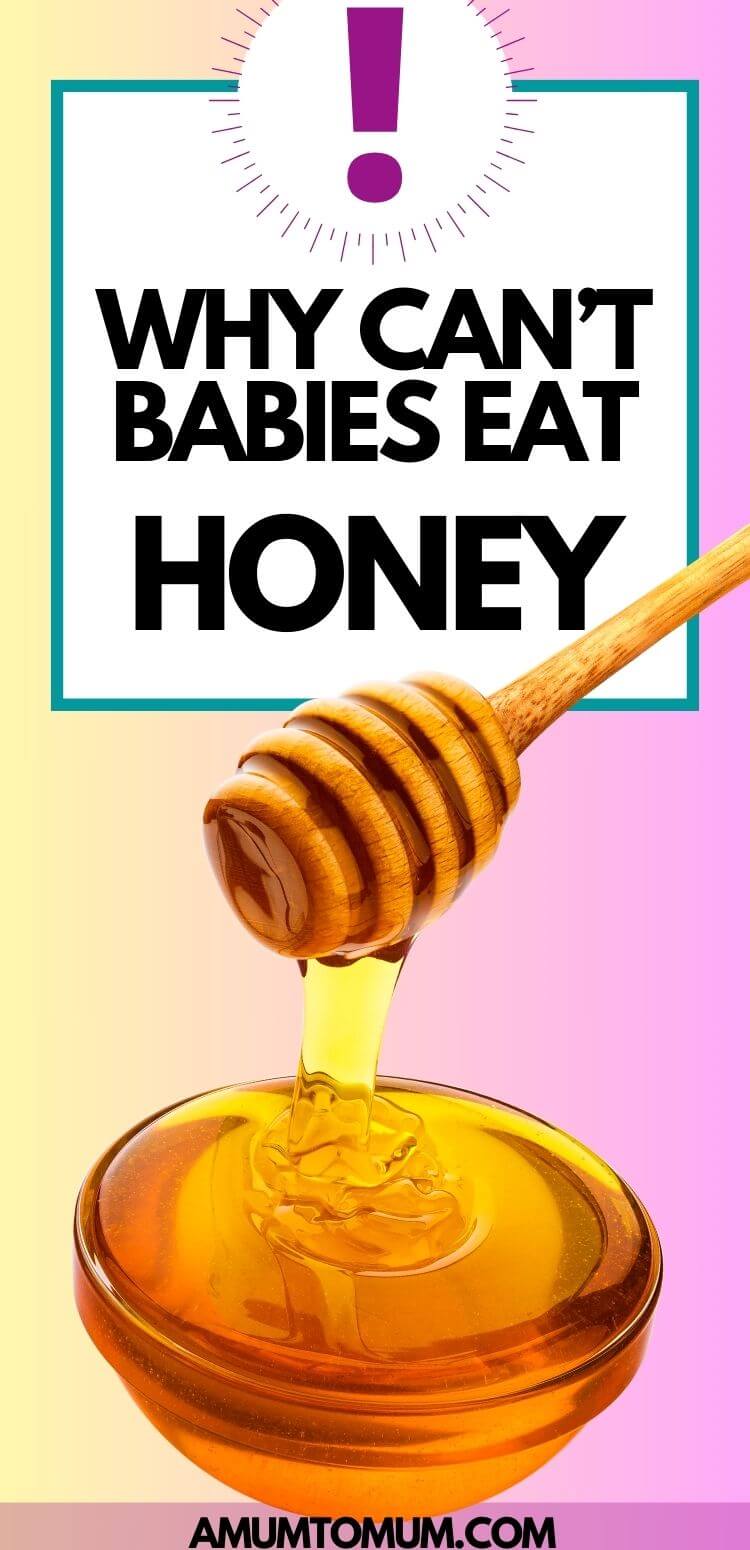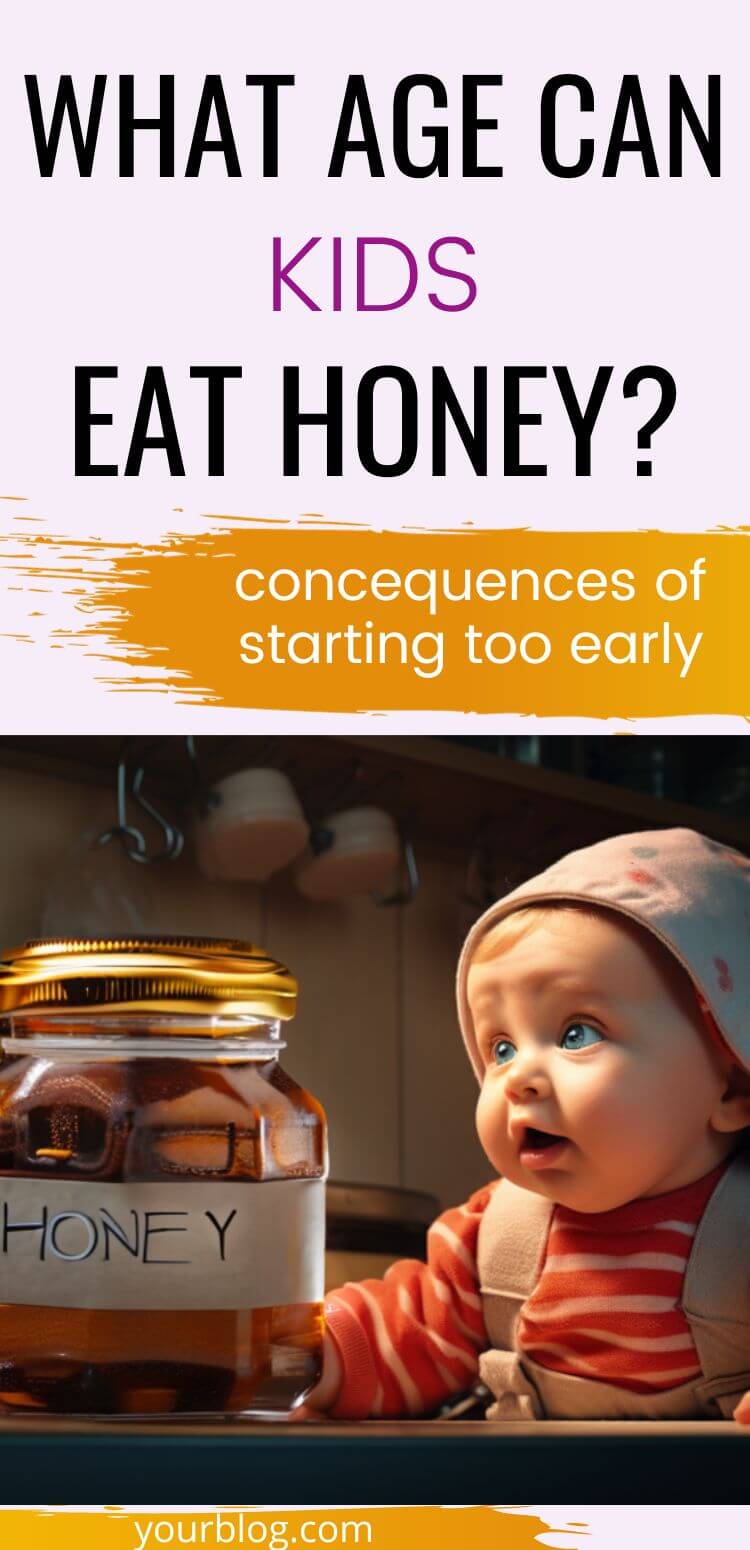What age can kids eat honey is an important question to ask yourself as a parent Prior to making this move, it’s vital to be aware of the appropriate age to include this healthy sweetener in your child’s diet.
This article, in a bid to provide helpful information, will address the critical question: At what age can toddlers, like your little Emma or George, start enjoying honey? We will explore the potential risks and benefits, and all the indispensable knowledge you need to make a well-informed decision for your child’s health.
What Age Can Kids Eat Honey
The recommendation is for babies of 0 to 12 months to abstain from honey, for the prevention of infant botulism. Considering age guidelines is essential for introducing honey to toddlers.
It’s advisable to introduce honey into the diet once the child surpasses the age of 1 year, correlating this with the development of their immune system.
RELATED ARTICLE: How to sneak veggies into kids food
0-12 Months
The current medical recommendation is to avoid giving honey to infants under 12 months old.
- Infants’ digestive systems and immune systems are still immature and developing key functions.
- Raw honey may contain Clostridium botulinum spores.
- Botulinum spores can survive in honey and lead to infant botulism, a rare but serious paralytic illness.
- An infant’s gastrointestinal tract lacks the acids and gut flora to destroy the spores before they are absorbed.
- Reported cases of infant botulism are nearly all linked to honey ingestion.
- Alternatives like fruit purees, rice cereals, and iron-fortified infant cereals are recommended.
- Around 6 months, allergen introduction can begin with foods like eggs and peanut butter, but honey should still be avoided.

1-2 Year Olds
Pediatricians give the green light to introduce honey around 12 months old.
- By one year, the digestive system and immune system are developed enough to handle botulinum spores.
- Small amounts of honey can be given to test for tolerance and allergies.
- Pasteurized honey is safer as it has undergone heat treatment to destroy spores.
- Dilute honey with water or mix it into foods to decrease choking risks.
- Limit honey to less than 1 teaspoon per day due to its high sugar content.
- Monitor closely for any signs of allergic reaction like rash, coughing, or GI upset.
Over 2 Years Old
Around 2-3 years old, honey can be incorporated more regularly into a child’s diet.
- Pay attention to portion control, as too much honey poses a risk for excess sugar intake.
- Mix honey into foods like yogurt, oatmeal, and whole grains for the benefits of antioxidants and minerals.
- Avoid giving honey right before naps or bedtime, as its stickiness can lead to cavities if teeth are not brushed.
- Check food labels for hidden honey ingredients, like in granola bars or cereals.
- Be aware of overall sugar limits based on age, which range from 3 teaspoons (12g) at 2 years old up to 6 teaspoons (25g) daily after age 4.

RELATED ARTICLE: Biggest Potty Training Mistake
Why is Honey Bad for Babies
The honey’s potential danger for babies stems from the Clostridium botulinum spores present in it. Infant botulism, a serious digestive system illness, can be caused by these spores on infants. Babies under 12 months old, with not fully developed digestive systems, are particularly vulnerable to this infection.
What is Infant Botulism
Infant botulism is a rare paralytic illness caused by botulinum toxin absorption. Involves muscle weakness, difficulty breathing, and feeding.
What Causes Infant Botulism
Infant botulism is caused by ingesting spores of Clostridium botulinum bacteria. Spores germinate, multiply, and release neurotoxin in the intestine.
- Toxin then enters the bloodstream and causes paralysis.
- Afflicts the immature digestive systems of babies under 12 months old.
- Honey and soil dust are the main sources of spores.
- Spores resist destruction by an infant’s low stomach acidity.
- Gut flora and competitive organisms are also underdeveloped.
- Nearly all infant botulism cases are tied to honey ingestion.
What are The Symptoms of Botulism
Botulism symptoms appear 3-30 days after consuming botulinum spores. The first signs are constipation, lethargy, and weakness.
- Progresses to poor feeding, and loss of head control.
- Muscle tone and reflexes decrease over time.
- Pupils become fixed and dilated.
- Facial expression becomes mask-like.
- Difficulty swallowing leads to increased drooling.
- Weak cry and loss of facial expressions.
- Worsening muscle weakness causes breathing issues.
- Requires mechanical ventilation due to paralysis.
- Abdominal breathing and lack of chest excursion.
- Poor responsiveness, and loss of alertness.
- Dry mouth, ulcerations of the mouth.
- Urinary retention may also occur.
Botulism Treatment
Botulism treatment involves hospitalization, antitoxin administration, and intensive supportive respiratory, nutritional, and nursing care until paralysis subsides.
- Can quickly become life-threatening, needing hospitalization.
- Treatment involves antitoxin and intensive supportive care.
- Full recovery is expected but hospitalization is lengthy.
- Prevention is by avoiding honey before 12 months old.
Introducing Honey Safely
The objective is ensuring your toddler’s safety, the action is introducing honey, and the result is minimizing the risk of botulism infection. To achieve this, follow these actions:
Action one involves starting with small quantities. The toddler is given a small taste of honey to gauge their reaction, which aims to minimize the risk of allergic reactions or digestive issues.
Action two is avoiding raw, unpasteurized honey. The preference should be for pasteurized honey. Its heating process kills any potential bacteria, which reduces the risk of botulism infection.
Action three is diluting honey with water. The goal is to incorporate honey into your toddler’s diet. This action reduces their exposure to added sugars and limits the risk of tooth decay.
Lastly, consultation with your pediatrician is important before introducing honey to your toddler. They provide personalized guidance based on your child’s specific needs. This ensures a safe and healthy transition.
Honey Alternatives
Honey alternatives exist for toddlers under 12 months old to prevent infant botulism. Alternatives to honey, such as apple sauce or mashed fruits, serve as natural sweeteners for younger babies.
As children age, maple syrup and agave nectar become viable honey substitutes. Small doses of these alternatives, under adult supervision, ensure safety. Proper dilution of these alternatives further enhances safety.
Immediate medical attention becomes necessary if children show allergic reaction symptoms, like wheals or difficulty breathing. The availability of an epinephrine auto-injector (EpiPen) can help manage emergency situations.
RELATED ARTICLE: Essential Oils that can help you with Kids Cough and Flu
How Much Honey Can Cause Infant Botulism
There is no known safe amount of honey that can be given to infants under 1-year-old when it comes to the risk of infant botulism. Even a small taste of honey can potentially contain botulinum spores that could lead to infant botulism in babies with immature digestive systems.
While the amount of spores may vary in different honey samples, it only takes a very small dose to cause illness in infants. As little as 10-100 spores of Clostridium botulinum can lead to botulism in susceptible individuals. Most experts agree that no level of honey consumption is considered safe for babies under 12 months.
One estimate is that the spore concentration needed to cause botulism in infants can be as low as 10 to 180 spores per gram of honey. So even a tiny taste of honey could potentially surpass that minimum infectious dose.
Since the number of spores in any given honey sample is unpredictable and proper dilution is nearly impossible, pediatricians and health organizations universally recommend complete avoidance of honey in the first year of life. Small tastes or doses are still potentially hazardous. The only guaranteed way to prevent infant botulism from honey is by introducing it after 12 months of age once the digestive system has matured.
Can Toddlers Eat Honey Nut Cheerios?
Toddlers, under the age of 1, should not consume Honey Nut Cheerios. Honey, due to the risk of botulism, is to be avoided until after the child’s first birthday. To ensure your child’s safety, it’s important to adhere to these recommended guidelines.

Can Babies Start Eating Puree Recipes with Honey?
When transitioning to solids with these puree recipes, it’s important to note that babies under one year old should not consume honey due to the risk of infant botulism. It is safer to wait until after their first birthday to introduce honey into their diet.
Conclusion
So, now you know what age can kids eat honey and why.
The importance of waiting exists until your child reaches the age of one before introducing honey. The risk of infant botulism, a serious illness, is the reason for delay because it can be present in honey.
Upon reaching this age, the general safety of incorporating honey in small amounts becomes apparent. Always monitoring your toddler for any symptoms of infant botulism is a necessary precaution. Considering honey alternatives is an option if needed.
The readiness to add a touch of natural sweetness to your little one’s meals is a joyous occasion.
Want to save this article for later?
Pin it!





